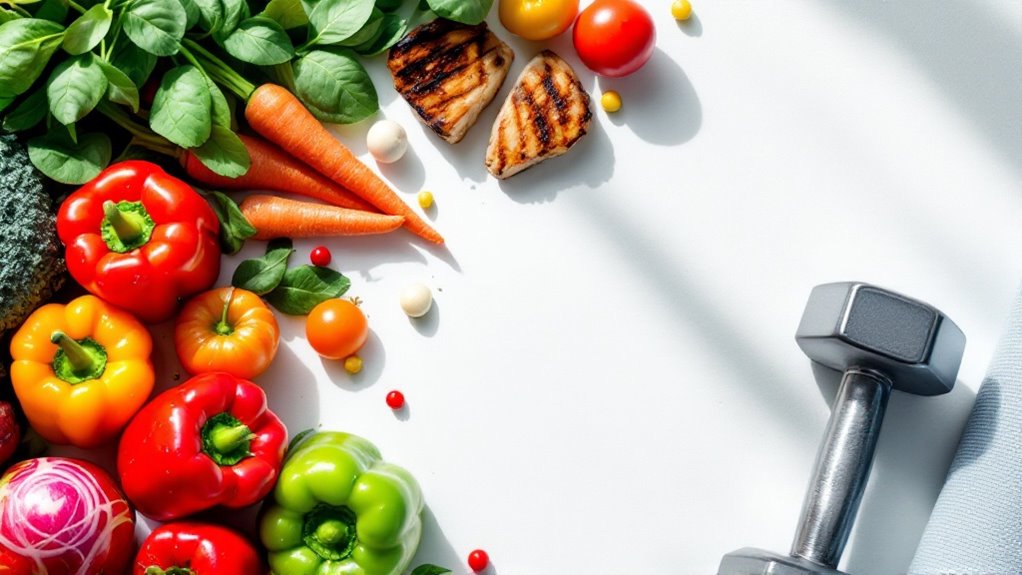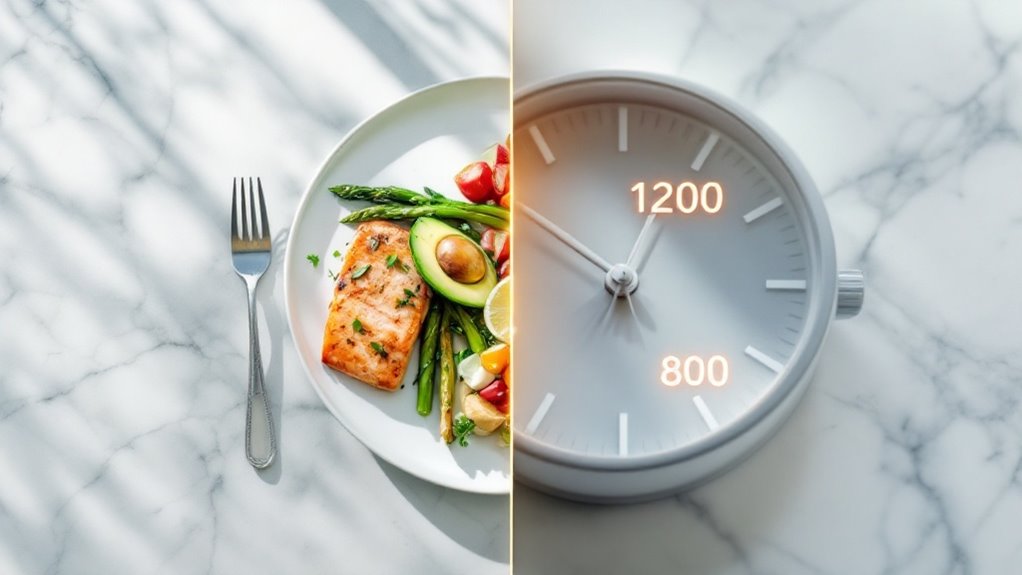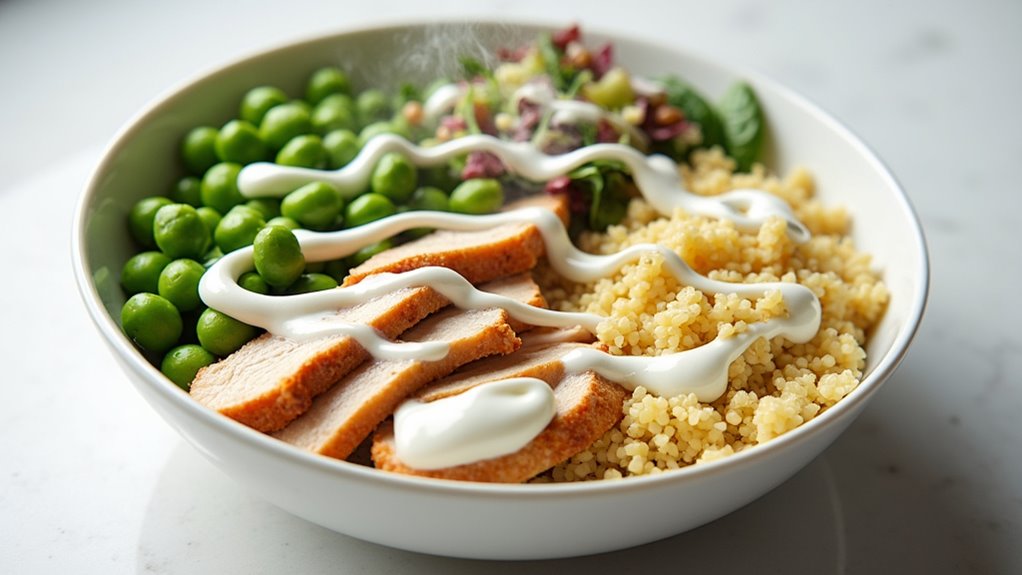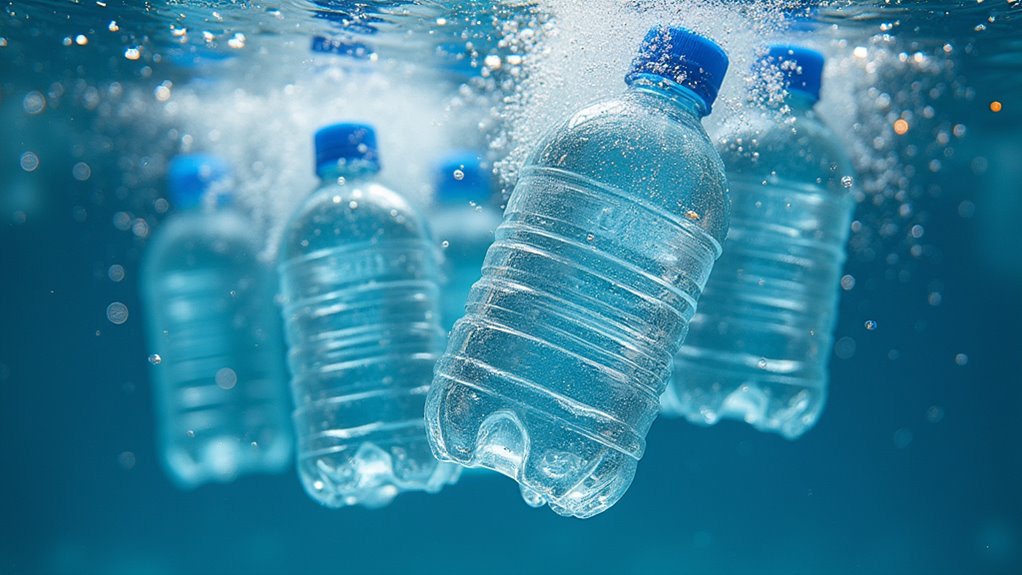Burning more calories isn’t rocket science – it’s math and movement. Creating a caloric deficit requires both smart eating and consistent activity. High-intensity workouts torch calories faster, but don’t discount everyday movements like cleaning or taking stairs. NEAT (Non-Exercise Activity Thermogenesis) contributes up to 30% of daily burn through simple fidgeting and walking. Proper nutrition timing and hydration boost metabolism. Quick fixes fail; sustainable lifestyle changes stick. The real secret lies in understanding how these elements work together.

While many people obsess over the latest fad diets and exercise routines, the truth about weight loss isn’t complicated. It’s all about creating a caloric deficit through a combination of dietary restriction and physical activity. Let’s face it – you can’t outrun a bad diet, no matter how many hours you spend on the treadmill.
The body burns calories in various ways, and surprisingly, formal exercise isn’t the biggest contributor. Non-exercise activity thermogenesis (NEAT) – fancy term for everyday movements like fidgeting, walking to your car, or doing laundry – accounts for 15-30% of daily caloric burn. Yeah, cleaning your house actually helps you lose weight. Who knew? The COVID-19 pandemic has caused people to spend four more hours sedentary each day, making it crucial to find ways to stay active at home. Research suggests that most people burn about 3,000 daily calories regardless of their activity level.
Think you need to hit the gym to burn calories? Your daily fidgeting and household chores are secret calorie-burning weapons.
When it comes to structured exercise, intensity matters more than duration. High-intensity workouts that engage multiple muscle groups torch more calories than leisurely walks. But here’s the kicker – you need to keep changing things up. The body adapts quickly, and doing the same routine over and over leads to plateaus. Boring and ineffective. Double whammy.
The real magic happens when proper nutrition meets regular exercise. A balanced diet with the right mix of proteins, carbs, and fats provides the fuel needed for workouts while supporting weight loss goals. Timing matters too – eating the right foods at the right times can boost metabolism and energy levels. Regular exercise helps your body maintain insulin sensitivity, making it easier to control blood sugar levels.
And water? Drink it. Lots of it. Dehydration wreaks havoc on metabolic function.
For sustainable results, focus on making lifestyle changes rather than quick fixes. Stand more at work. Take the stairs. Play with your kids. These small changes add up to significant caloric burn over time.
The body responds to regular exercise by becoming more efficient at using oxygen and energy, while also adapting to use fat as a primary fuel source during prolonged activity. Sure, it’s not as exciting as the latest miracle diet pill, but it actually works. Imagine that.
Frequently Asked Questions
Why Do Some People Burn Calories Faster Than Others?
Some people are genetic lottery winners – their bodies naturally burn calories faster.
Muscle mass plays a huge role; more muscle equals more calories burned, even while sleeping. Hormones are another game-changer, especially thyroid function.
Age, gender, and body composition throw their weight around too. Even basic stuff like body size matters – bigger people naturally torch more calories.
It’s not always fair, but that’s biology.
Can Stress Affect How Many Calories I Burn During Exercise?
Yes, stress absolutely messes with calorie burn during exercise.
When cortisol levels spike from stress, the body’s metabolism takes a hit. It’s like throwing a wrench in the metabolic engine. The body becomes less efficient at burning fat, and exercise results suffer.
Not only that, but stress can kill workout motivation. Double whammy.
The good news? Exercise itself fights stress. Work out regularly, and that stress-induced metabolic slowdown might just fix itself.
Does Sleeping More Help With Calorie Burning?
Sleeping more won’t magically torch calories – you only burn about 40-55 calories per hour while snoozing.
But here’s the kicker: proper sleep is essential for weight management. Sleep deprivation messes with hunger hormones, making people eat more junk food.
Getting enough shut-eye helps maintain a healthy metabolism and keeps those pesky cravings in check. Quality sleep beats counting sheep for burning fat.
Should I Exercise on an Empty Stomach to Burn More Calories?
While fasted exercise can boost fat burn by up to 70%, it’s not all sunshine and rainbows.
Sure, you’ll tap into those fat stores, but performance takes a hit. People exercise less intensely and cover less distance when hungry.
Plus, there’s the whole dizzy, lightheaded thing to worry about. For beginners or intense workouts, eating first is smarter.
The body’s not fooled – it compensates long-term anyway.
Does Drinking Cold Water Increase Calorie Burn Throughout the Day?
Yes, cold water does increase calorie burn – but don’t get too excited.
The body uses energy to warm cold water to body temperature, burning about 4-7 calories per glass.
Drink eight glasses daily? You’ll torch a whopping 67 calories. Not exactly a weight loss miracle.
Still, cold water can help with hydration and feeling full before meals.
Every little bit counts, right?









